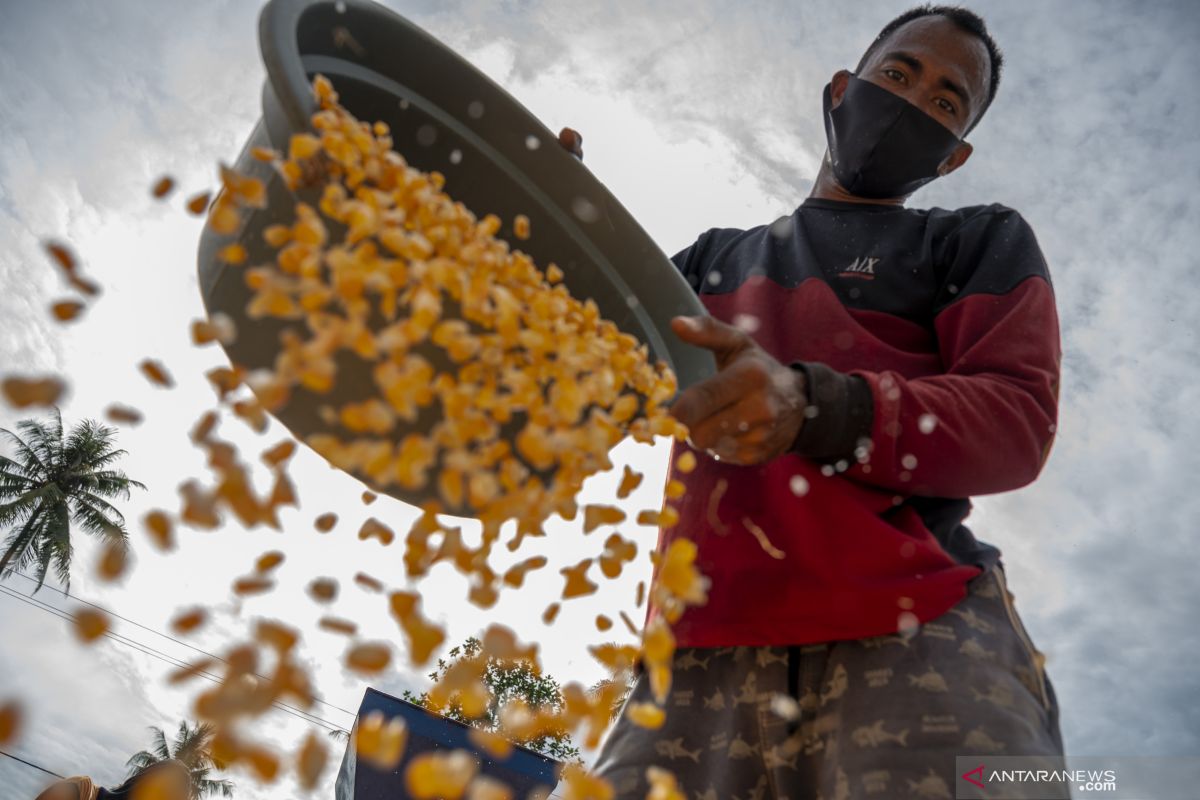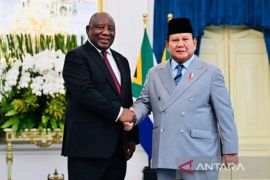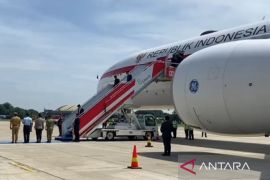In addition, climate change has become one of the serious threats to food security. Extreme weather has greatly affected agricultural and livestock production in various countries.
For instance, the production of beef in Australia, one of the largest beef producers, has decreased due to floods in several regions.
Hence, production of several food commodities has decreased or also been limited, thereby causing their prices to soar.
The condition makes access to food difficult, especially for the poor.
It also increases the number of children, especially those under five years of age, who suffer from malnutrition. Thus, the situation also threatens the well-being of the younger generation.
The problem regarding global food security cannot be solved without international collaboration. All countries have to realize that cooperation is required to mitigate the impacts of climate change that has increasingly threatened the agricultural sector.
Hence, Indonesian Agriculture Minister Syahrul Yasin Limpo, as chair of the 2022 G20 Agriculture Working Group, emphasized that food security will be the main discussion at the forum.
The working group is themed "Balancing Production and Treat to Fulfill Food for All."
As the part of the working group, agriculture ministers of the G20 members must strengthen their commitments to ensure food and nutrition security for the global community as well as to guarantee the implementation of international trade of agricultural commodities.
"The G20 Agriculture Working Group will discuss three main issues, including building a resilient and sustainable food system,” Limpo remarked.
According to the minister, the other issues pertained to promoting an open, fair, and transparent agricultural trade as well as encouraging the implementation of digital technology to improve the business sector in rural areas.
Italian Minister of Agriculture Stefano Patuanelli, who was the chair of the working group in 2021, also echoed that joint international efforts were required to achieve global food security.
Patuanelli noted that in an increasingly interconnected world, multilateralism is the key to solving the global food security challenges.
"Thus, by realizing its important role, G20 is always committed to finding effective and fair solutions to achieve a better and sustainable future," he added.
The ongoing pandemic has created uncertainty and inequality in various sectors, including the economy. In addition, it has reduced the people’s productivity.
Furthermore, the differences in the ability of each country in handling the pandemic and in restoring their national economy have also contributed to the uneven pace of economic recovery around the globe.
Collaboration
Deputy for International Economic Cooperation at the Coordinating Ministry for Economic Affairs, Edi Prio Pambudi, emphasized that international collaboration through the G20 forum must be able to encourage global economic recovery.
The G20 collaboration is expected to improve the livelihoods of smallholders and to promote innovative digital agripreneurs.
"The amount of agriculture production affects the smooth supply of food, which has an impact on the people’s welfare. Hence, we highly hope that a strong collaboration would be established," Pambudi -- who is also one of Indonesia’s co-sherpas at the 2022 G20 -- stated.
In addition, the discussions of the Agriculture Deputies Meeting (ADM) during Indonesia’s 2022 G20 Presidency are expected to encourage collaboration on agricultural research and innovation as well as the role of youth in developing agricultural innovation.
The involvement of young workers in the business sector is also required to increase productivity, so the sector can help to eradicate extreme hunger and poverty.
"Apart from realizing global food security, discussing about the agriculture sector is also important for supporting the green economy agenda," the deputy stated.
Furthermore, he emphasized that the implementation of Indonesia's 2022 G20 Presidency is also expected to contribute to domestic economic recovery and to benefit small and developing countries.
Thus, Indonesia will also invite several countries outside the G20 members and some international organizations to collaborate in formulating concrete actions for global recovery.
"We hope that the 2022 G20 meetings would not only produce ideas but also real actions that can generate various innovations and breakthroughs," Pambudi added.
Earlier, President Joko Widodo had stated that preparations for Indonesia’s 2022 G20 Presidency would not only focus on the implementation of the event but would also have a positive impact on domestic economic recovery.
Hence, several G20 side events will be held in various regions across Indonesia to promote the nation’s cultural diversity, tourism, and investment potential and to showcase the superiority of Indonesian local products.
Meanwhile, Foreign Affairs Minister Retno Marsudi emphasized that Indonesia will highlight inclusivity at the 2022 G20 Presidency.
Marsudi stated that Indonesia will not only accommodate the interests of G20 members but also those of developing countries and vulnerable communities, including the developing nations in Asia, Africa, Latin America, as well as the Pacific and Caribbean.
The 2022 G20 is the foremost time for Indonesia to host the forum, thereby making it the first developing country in Southeast Asia to lead the group, which yields considerable influence on global economic and social policies.
During the 2022 presidency, Indonesia raised the theme of "Recover Together, Recover Stronger," focusing on three strategic issues of inclusive health care, digital-based economic transformation, and sustainable energy transition.
A total of some 127 meetings will take place before the G20 Summit in October 2022.
Meanwhile, the 2022 G20 meetings regarding the agricultural sector will be held during several group discussions from March to September 2022.
The series of meetings include the first echelon-level meeting on March 30-31, 2022, in Bogor City, West Java Province; deputy-level meeting on July 27-29, 2022, in Yogyakarta; and ministerial-level meeting on September 13-15, 2022, in Bali.
Also lined up is a sub-working group meeting regarding the agriculture market information system on March 23, 2022, in Bogor City as well as a sub-working group meeting of agricultural science on July 6-8, 2022, in Bali.








